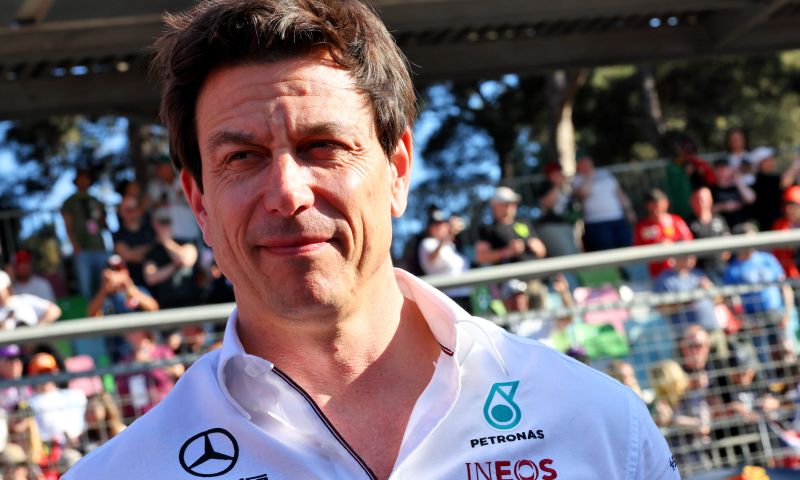Wolff: 'Used to not even know what a front suspension cost'
F1 News

- GPblog.com
One Grand Prix is not the other. Whereas Mercedes was a team to reckon with in Australia, the team of Lewis Hamilton and George Russell lacked speed in Azerbaijan. So Mercedes has not yet left the sporting valley, although it is working hard on updates. But development opportunities appear to be limited due to the budget cap.
There was no question of too much euphoria just under a month ago in Melbourne. Toto Wolff was realistic: one swallow does not make a summer. The Austrian realised all too well that Mercedes still has a long way to go before the German team will be competing for the top spots every Grand Prix again. Adjustments are needed, Wolff reiterated again. Preferably big ones, but that is not possible.
Prefer new chassis for Mercedes
"I think the cost gap gives it so many constraints", the team boss told the media, including GPblog, pointing to the budget cap. "Because if we were completely free we would bring a different chassis. So we have to really decide carefully what we want to upgrade, so bringing new front suspension to Imola, and then the aero upgrade that comes with it, and floor. But if we were free, we'd probably bring double the amount of upgrades, but so would the others."
The budget cap has completely changed the mindset of teams. "Like in the past, we wouldn't even know what a front suspension costs. And today we need to take the purchase price of the aluminium, then factor in how much is actually the cost of the car, how much is actually the machining of it cost, how much do you need to write off from the aluminium that you don't need, price out every bolt that goes into the suspension, the carbon that you bought out of the raw material, then cut it, put it on, what's the energy cost of the composite room, the overhead that goes into this, and at the end comes out the product."
'Carte blanche needed'
Wolff indicated that dozens of new people have been hired (who of course have to earn a salary, which in turn falls under the budget cap), who keep an eye on exactly what the available money is spent on. "It means that it's gone so far that we have cost analysts, engineers, that need to decide whether buying that kilogram of raw material of aluminium is worth the performance gain on the other side. And that makes it so complex, and that process is so difficult and painful. People that should be creative only and have basically carte blanche, they can't do it because somebody is telling them whether it's feasible in the cost gap or not."

